Donald D. Anthony, M.D., Ph.D.
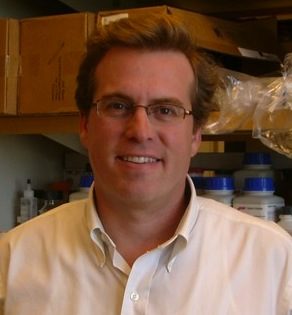 Donald Anthony is a Professor of Medicine and Pathology at Case Western Reserve University School of Medicine, Section Chief of Rheumatology at the Cleveland VA Medical Center, and staff physician at University Hospitals Medical Center. He obtained his graduate degree in Biochemistry, studying the regulation of protein synthesis at the level of cap binding and RNA unwinding initiation factor activity utilized in cap independent viral translation. He believes he performed the first adaptation of toeprinting (ribosome footprinting) in a eukaryotic system and helped to elucidate the role of cap binding protein factors in cap independent Internal Ribosomal Entry Site (IRES) dependent translation, working in the laboratory of William C Merrick. Post-Doctoral work 1993-1998 with Tarique Haqqi, Peter Heeger and Paul Lehman involved evaluation of host T cell autoimmunity in a collagen induced arthritis model system. He joined the faculty at Case in 1999 as an instructor and since then he has been continuously funded at the national level to lead an investigative team continuing work with host cellular immunity, in the setting of chronic HCV infection and HCV-HIV co-infection. Themes of laboratory focus include mechanisms and markers of immune activation as they relate to immune function in the setting of HCV infection, NK cell control of HCV associated HCC, immune monitoring during chronic viral infection and during immune therapies, and immune health in the settings of chronic viral infection and autoimmunity. He participates in the national AIDS Clinical Trials Consortium as a member of the Inflammation Transformative Science Group, as Safety Monitoring committee Chair for the Hepatitis Transformative Science Group, and as Case Immunology Support laboratory co-investigator. He serves as a senior editor on the new Case journal Pathogens and Immunity, cares for HCV infected patients, and cares for patients with autoimmune disease.
Donald Anthony is a Professor of Medicine and Pathology at Case Western Reserve University School of Medicine, Section Chief of Rheumatology at the Cleveland VA Medical Center, and staff physician at University Hospitals Medical Center. He obtained his graduate degree in Biochemistry, studying the regulation of protein synthesis at the level of cap binding and RNA unwinding initiation factor activity utilized in cap independent viral translation. He believes he performed the first adaptation of toeprinting (ribosome footprinting) in a eukaryotic system and helped to elucidate the role of cap binding protein factors in cap independent Internal Ribosomal Entry Site (IRES) dependent translation, working in the laboratory of William C Merrick. Post-Doctoral work 1993-1998 with Tarique Haqqi, Peter Heeger and Paul Lehman involved evaluation of host T cell autoimmunity in a collagen induced arthritis model system. He joined the faculty at Case in 1999 as an instructor and since then he has been continuously funded at the national level to lead an investigative team continuing work with host cellular immunity, in the setting of chronic HCV infection and HCV-HIV co-infection. Themes of laboratory focus include mechanisms and markers of immune activation as they relate to immune function in the setting of HCV infection, NK cell control of HCV associated HCC, immune monitoring during chronic viral infection and during immune therapies, and immune health in the settings of chronic viral infection and autoimmunity. He participates in the national AIDS Clinical Trials Consortium as a member of the Inflammation Transformative Science Group, as Safety Monitoring committee Chair for the Hepatitis Transformative Science Group, and as Case Immunology Support laboratory co-investigator. He serves as a senior editor on the new Case journal Pathogens and Immunity, cares for HCV infected patients, and cares for patients with autoimmune disease.
Michael L. Freeman, Ph.D.
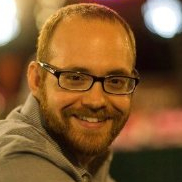 Mike Freeman is an Assistant Professor in the Division of Infectious Diseases and HIV Medicine, Department of Medicine, Case Western Reserve University School of Medicine and has a secondary appointment in the Department of Pathology. He earned a B.S. in Microbiology from Clemson University followed by a Ph.D. in Molecular Virology and Microbiology from the University of Pittsburgh, studying herpesvirus immunology under the mentorship of Dr. Robert L. Hendricks. Dr. Freeman received postdoctoral training at the Trudeau Institute (Drs. Marcia A. Blackman and David L. Woodland), Cleveland Clinic (Dr. Booki Min), and CWRU (Dr. Michael M. Lederman). He has been at CWRU since 2014 and an Assistant Professor since January 2020. Dr. Freeman has a long-standing interest in understanding how chronic viral infections modulate T cell immunity and immunopathology. Currently his research focuses on how activated T cells contribute to cardiovascular disease risk in HIV and cytomegalovirus infections and beyond. (more…)
Mike Freeman is an Assistant Professor in the Division of Infectious Diseases and HIV Medicine, Department of Medicine, Case Western Reserve University School of Medicine and has a secondary appointment in the Department of Pathology. He earned a B.S. in Microbiology from Clemson University followed by a Ph.D. in Molecular Virology and Microbiology from the University of Pittsburgh, studying herpesvirus immunology under the mentorship of Dr. Robert L. Hendricks. Dr. Freeman received postdoctoral training at the Trudeau Institute (Drs. Marcia A. Blackman and David L. Woodland), Cleveland Clinic (Dr. Booki Min), and CWRU (Dr. Michael M. Lederman). He has been at CWRU since 2014 and an Assistant Professor since January 2020. Dr. Freeman has a long-standing interest in understanding how chronic viral infections modulate T cell immunity and immunopathology. Currently his research focuses on how activated T cells contribute to cardiovascular disease risk in HIV and cytomegalovirus infections and beyond. (more…)
Michael M. Lederman, M.D.
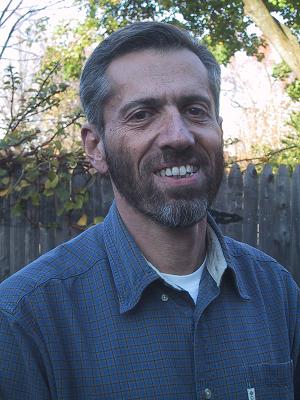
Michael Lederman is the Scott R. Inkley Professor of Medicine at Case Western Reserve University School of Medicine and University Hospitals/Cleveland Medical Center where he is also Professor of Pathology, Microbiology/Molecular Biology and Biomedical Ethics. Dr. Lederman is the oldest and most forgetful member of the Laboratory of Interesting Immunology. He received his medical degree from the Mt. Sinai School of Medicine and trained in Internal Medicine at Case Western Reserve University, University Hospitals of Cleveland and the VA Medical Center where he served as chief resident in Medicine. He completed fellowship training in Infectious Diseases, received post-doctoral training in cellular immunology in the laboratory of Dr. Jerrold Ellner and joined the faculty at CWRU in 1980. Dr. Lederman has been engaged in HIV/AIDS research since 1982. He established the Special Immunology Unit (HIV clinic) at CWRU in 1985 and the NIH funded AIDS Clinical Trials Unit at CWRU in 1987. His work focuses on the mechanisms whereby HIV infection induces immune dysfunction and on strategies to correct and prevent it. He is credited as an author of more than 350 peer reviewed research publications and has read every one of them. He owns two children and lives with his first wife and two dogs. Most recently, he launched a new journal – Pathogens and Immunity – that threatens to make life good for biomedical researchers. He swims (slowly) and plays the piano (badly).
Daniel Popkin, M.D, Ph.D
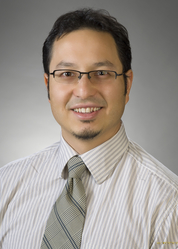
Daniel Popkin, M.D., Ph.D., joined Case Western Reserve University and University Hospitals Cleveland Medical Center in 2012. Dr. Popkin earned his medical degree from Washington University School of Medicine, where he also received his Ph.D. in immunology. He was accepted into the Dermatology Residency at Washington University/Barnes-Jewish Hospital in St. Louis, Missouri. Prior to joining Case Western Reserve University and University Hospitals Cleveland Medical Center, Dr. Popkin held a joint appointment at The Scripps Research Institute in La Jolla, where he conducted basic science research in immunology and at The Scripps Clinic in San Diego as a clinical Dermatologist.
As a member of the Department of Dermatology at University Hospitals Cleveland Medical Center, Dr. Popkin’s area of special interest includes the diagnosis and treatment of skin cancer, acne, psoriasis, eczema, vitiligo and immunodermatologic disorders. Dr. Popkin is a principle author of a clinical handbook of dermatology which was published in 2009. He is also published in multiple peer reviewed journals. Dr. Popkin is committed to excellence in patient care and education, for both patients and physicians-in-training.
Benigno Rodriguez, M.D.
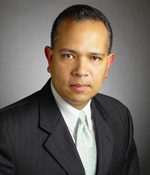 I am a specialist in Infectious Diseases and HIV Medicine with an interest in HIV pathogenesis, clinical outcomes, and
I am a specialist in Infectious Diseases and HIV Medicine with an interest in HIV pathogenesis, clinical outcomes, and
mechanisms of disease progression. I have extensive experience in HIV clinical trial design, conduct and analysis and have
served as a member of the leadership of the AIDS Clinical Trials Group. I am currently a member of the Inflammation and
End-Organ Disease Transformative Science Group of the ACTG. I received training in Clinical Epidemiology and
Biostatistics at Javeriana University in Colombia, and have generated innovative analytical and design approaches to a
multitude of basic and translational studies in HIV biology. I am the leader of the Case/UHC Clinical Research Site and
principal investigator of the Case/UHCMC AIDS Clinical Trials Unit, and in that capacity, lead the clinical trials research
team at the Special Immunology Unit, the HIV-only HIV clinic affiliated with Case Western Reserve University. I am also
the Director of the Patient Care and Research Database and the CFAR specimen repository. My interest in human
immunopathogenesis, background in HIV research, training in Clinical Epidemiology and Biostatistics, extensive experience
in clinical trial design and management, and leadership of the clinical research enterprise within the HIV group at Case helps the laboratory.
Carey Shive, Ph.D.
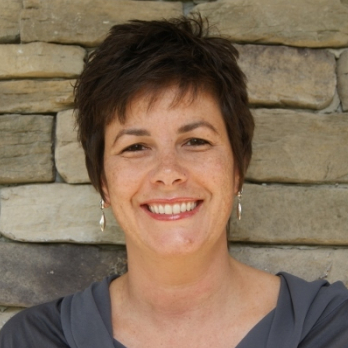 Carey Shive is a Research Health Scientist and GRECC Investigator at the Louis Stokes VA Medical Center and an adjunct instructor in the Department of Pathology at Case Western Reserve University. Carey has been working in immunology at Case Western Reserve University since 1993. She earned her PhD in 2014 working in Dr. Michael Lederman’s lab where she strove to understand the continued immune dysfunction in a group of patients who had controlled viremia with antiretroviral therapy, but were unable to reconstitute their CD4 T cell numbers; patients often referred to as “immune failures”. After graduating from Dr. Lederman’s lab, Carey joined the lab of Dr. Donald Anthony as a post-doctoral fellow where she studied how inflammation contributes to immune function and responsiveness to neo-antigen vaccine. Throughout her career as an immunologist she has been interested in chronic inflammation and soluble mediators that contribute to this inflammation. During her studies, she noticed many immune parallels between aging and chronic viral infection. Carey was recently awarded a Career Development Award from the Veteran’s Association and will be examining the underlying mechanisms in aging and chronic viral infections (HIV and HCV) associated with elevated expression of innate cytokines, the loss of immune homeostasis, immune exhaustion and senescence, and the related co-morbidities and mortality. She is looking forward to becoming an independent investigator with the support of her outstanding mentors in LII and the Louis Stokes VA Medical Center.
Carey Shive is a Research Health Scientist and GRECC Investigator at the Louis Stokes VA Medical Center and an adjunct instructor in the Department of Pathology at Case Western Reserve University. Carey has been working in immunology at Case Western Reserve University since 1993. She earned her PhD in 2014 working in Dr. Michael Lederman’s lab where she strove to understand the continued immune dysfunction in a group of patients who had controlled viremia with antiretroviral therapy, but were unable to reconstitute their CD4 T cell numbers; patients often referred to as “immune failures”. After graduating from Dr. Lederman’s lab, Carey joined the lab of Dr. Donald Anthony as a post-doctoral fellow where she studied how inflammation contributes to immune function and responsiveness to neo-antigen vaccine. Throughout her career as an immunologist she has been interested in chronic inflammation and soluble mediators that contribute to this inflammation. During her studies, she noticed many immune parallels between aging and chronic viral infection. Carey was recently awarded a Career Development Award from the Veteran’s Association and will be examining the underlying mechanisms in aging and chronic viral infections (HIV and HCV) associated with elevated expression of innate cytokines, the loss of immune homeostasis, immune exhaustion and senescence, and the related co-morbidities and mortality. She is looking forward to becoming an independent investigator with the support of her outstanding mentors in LII and the Louis Stokes VA Medical Center.
Scott Sieg, Ph.D.
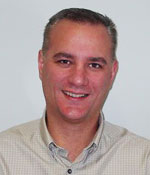 Scott Sieg, Ph.D. is an Associate Professor in the Department of Medicine, Division of Infectious Diseases and HIV Medicine. He is a trainer in the Departments of Pathology and Molecular and Microbiology. In addition to overseeing his own research laboratory, Dr. Sieg is the Director of the CFAR Immune Function Core Laboratory and Associate Director of the Cancer Center Imaging Core. Dr. Sieg grew up in Pittsburgh and graduated with a B.S. from La Roche College where he worked on his first science project that aimed to synthesize nucleic acid polymers under prebiotic conditions. He next graduated from Duquesne University with a M.S. in Biology. At Duquesne, he studied the effects of water acidification on crayfish pheromone communication. Dr. Sieg graduated from CWRU with his Ph.D. in 1996 from the laboratory of David Kaplan, where he studied parainfluenza virus. His current research centers on various aspects of HIV immunology and more recently, he is expanding his studies into areas of cancer immunology. Dr. Sieg has a wife, Francesca, who he met at Duquesne University and three “children,” Jessica, Jacob & Jenny, who are rapidly transforming into real people (adults). Dr. Sieg likes working out, gardening and messing up home repairs. He used to read books and coach basketball. Overall, Dr. Sieg is probably the most boring member of the research group and he likes it that way.
Scott Sieg, Ph.D. is an Associate Professor in the Department of Medicine, Division of Infectious Diseases and HIV Medicine. He is a trainer in the Departments of Pathology and Molecular and Microbiology. In addition to overseeing his own research laboratory, Dr. Sieg is the Director of the CFAR Immune Function Core Laboratory and Associate Director of the Cancer Center Imaging Core. Dr. Sieg grew up in Pittsburgh and graduated with a B.S. from La Roche College where he worked on his first science project that aimed to synthesize nucleic acid polymers under prebiotic conditions. He next graduated from Duquesne University with a M.S. in Biology. At Duquesne, he studied the effects of water acidification on crayfish pheromone communication. Dr. Sieg graduated from CWRU with his Ph.D. in 1996 from the laboratory of David Kaplan, where he studied parainfluenza virus. His current research centers on various aspects of HIV immunology and more recently, he is expanding his studies into areas of cancer immunology. Dr. Sieg has a wife, Francesca, who he met at Duquesne University and three “children,” Jessica, Jacob & Jenny, who are rapidly transforming into real people (adults). Dr. Sieg likes working out, gardening and messing up home repairs. He used to read books and coach basketball. Overall, Dr. Sieg is probably the most boring member of the research group and he likes it that way.
Souheil-Antoine Younes, Ph.D.
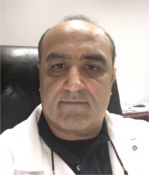 Dr. Souheil-Antoine Younes is an Assistant Professor in the Division of Infectious Diseases and HIV Medicine, Department of Medicine, Case Western Reserve University School of Medicine and University Hospitals/Cleveland Medical Center. The focus of Dr. Younes current research is to characterize the mechanisms responsible for the natural proliferation of CD4 T and CD8 T cells in HIV-1 infection. During the past years, Dr. Younes has investigated the immunological mechanisms by which CD4 T cells proliferate in mouse models and he is currently focusing on understanding the mechanism by which T cell proliferate in humans. Dr. Younes has an extensive knowledge in T cell homeostasis and in HIV-1 pathogenesis. This was acquired in Dr. Rafick-Pierre Sekaly’s laboratory in which Dr. Younes worked intensively on understanding the mechanism behind the maintenance of HIV-1 specific CD4 T cells in HIV-1 infected patients (Younes JEM ‘2003, Younes JI’2007). Thereafter he moved to the National Institute of Health (NIH) to investigate T cell homeostasis in mouse models under the supervision of Dr. William Paul where he preformed studies on cycling CD4 T cells in mouse models (Younes Plos. Biology ‘2011). Dr. Younes ongoing research regards Immunometabolism in HIV-1 infection. Dr. Younes and his coworkers found dysfunctional mitochondria in the regulatory T cells of immune failure HIV-1 infected subjects whom CD4 T cell count did not normalize even after years of anti-HIV-1 drug therapy. The current focus of Dr. Younes research is to find a mean to rescue dysfunctional mitochondria for the purpose to restore CD4 T cell count in Immune failure subjects.
Dr. Souheil-Antoine Younes is an Assistant Professor in the Division of Infectious Diseases and HIV Medicine, Department of Medicine, Case Western Reserve University School of Medicine and University Hospitals/Cleveland Medical Center. The focus of Dr. Younes current research is to characterize the mechanisms responsible for the natural proliferation of CD4 T and CD8 T cells in HIV-1 infection. During the past years, Dr. Younes has investigated the immunological mechanisms by which CD4 T cells proliferate in mouse models and he is currently focusing on understanding the mechanism by which T cell proliferate in humans. Dr. Younes has an extensive knowledge in T cell homeostasis and in HIV-1 pathogenesis. This was acquired in Dr. Rafick-Pierre Sekaly’s laboratory in which Dr. Younes worked intensively on understanding the mechanism behind the maintenance of HIV-1 specific CD4 T cells in HIV-1 infected patients (Younes JEM ‘2003, Younes JI’2007). Thereafter he moved to the National Institute of Health (NIH) to investigate T cell homeostasis in mouse models under the supervision of Dr. William Paul where he preformed studies on cycling CD4 T cells in mouse models (Younes Plos. Biology ‘2011). Dr. Younes ongoing research regards Immunometabolism in HIV-1 infection. Dr. Younes and his coworkers found dysfunctional mitochondria in the regulatory T cells of immune failure HIV-1 infected subjects whom CD4 T cell count did not normalize even after years of anti-HIV-1 drug therapy. The current focus of Dr. Younes research is to find a mean to rescue dysfunctional mitochondria for the purpose to restore CD4 T cell count in Immune failure subjects.
(more…)